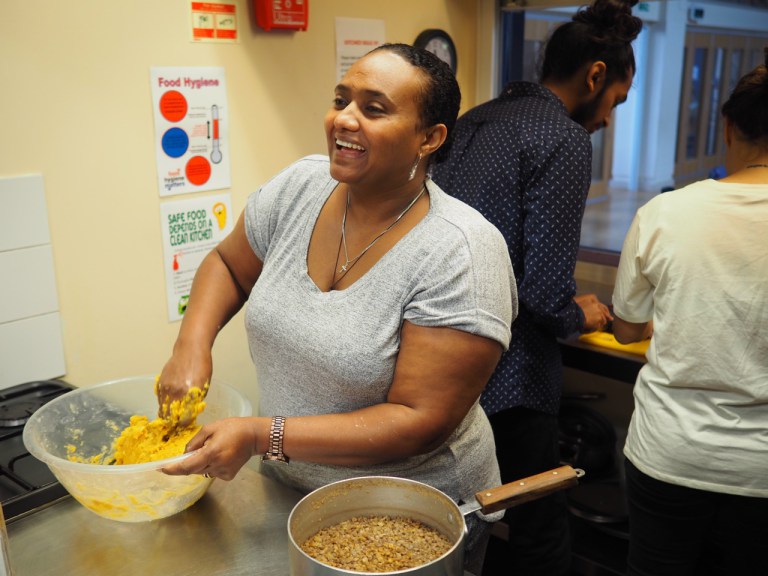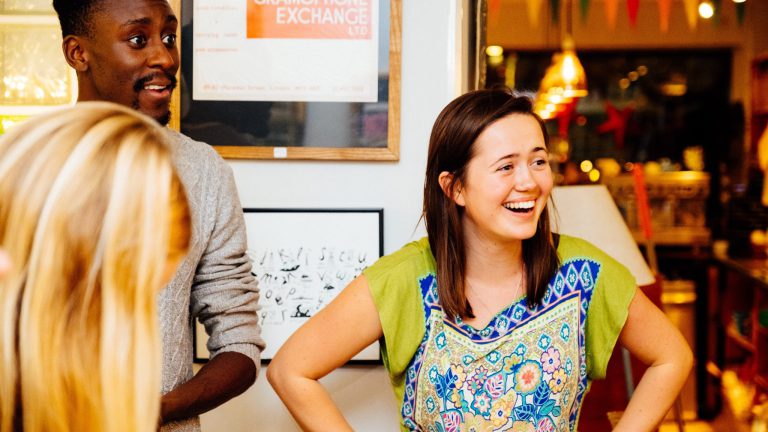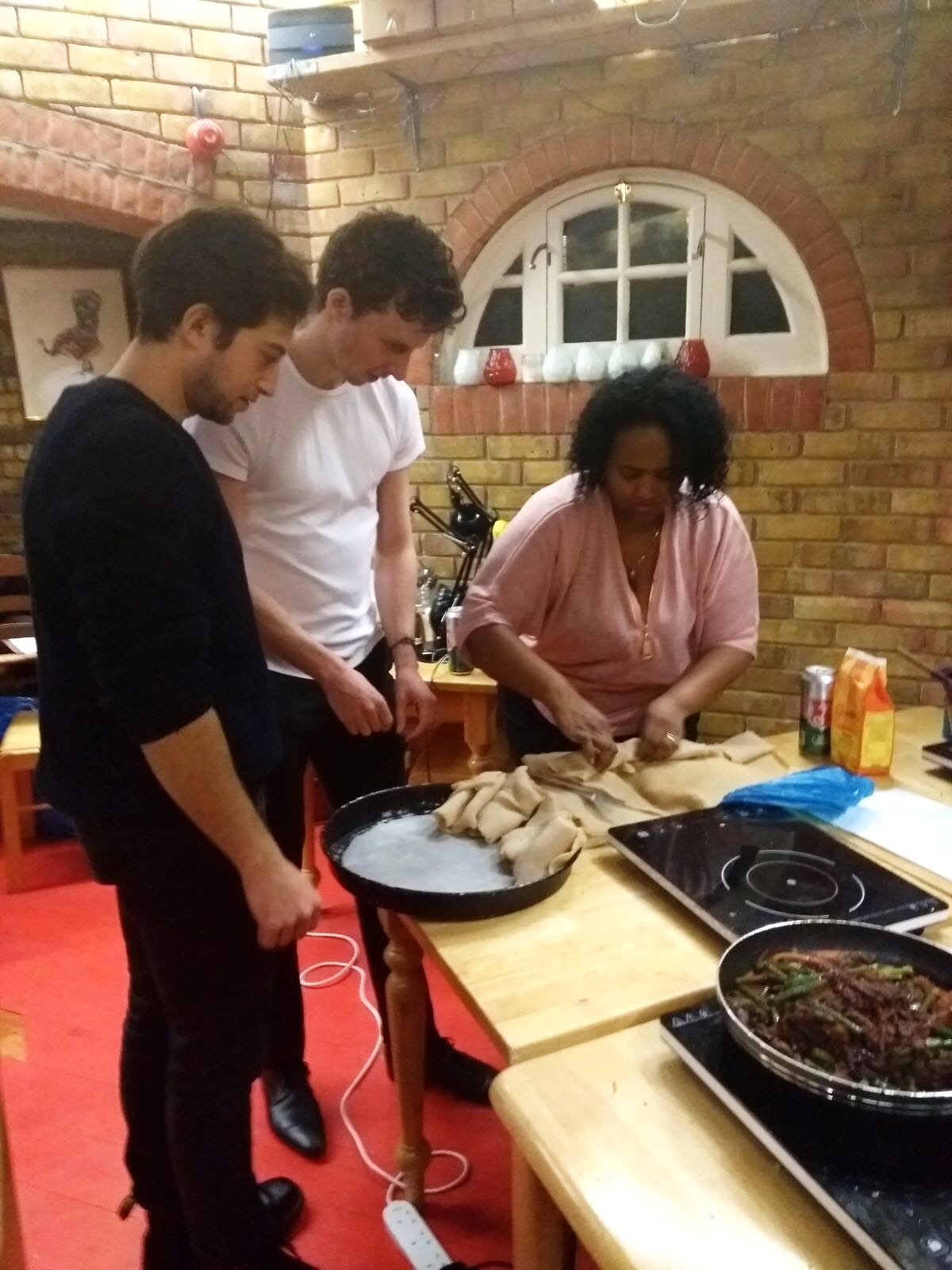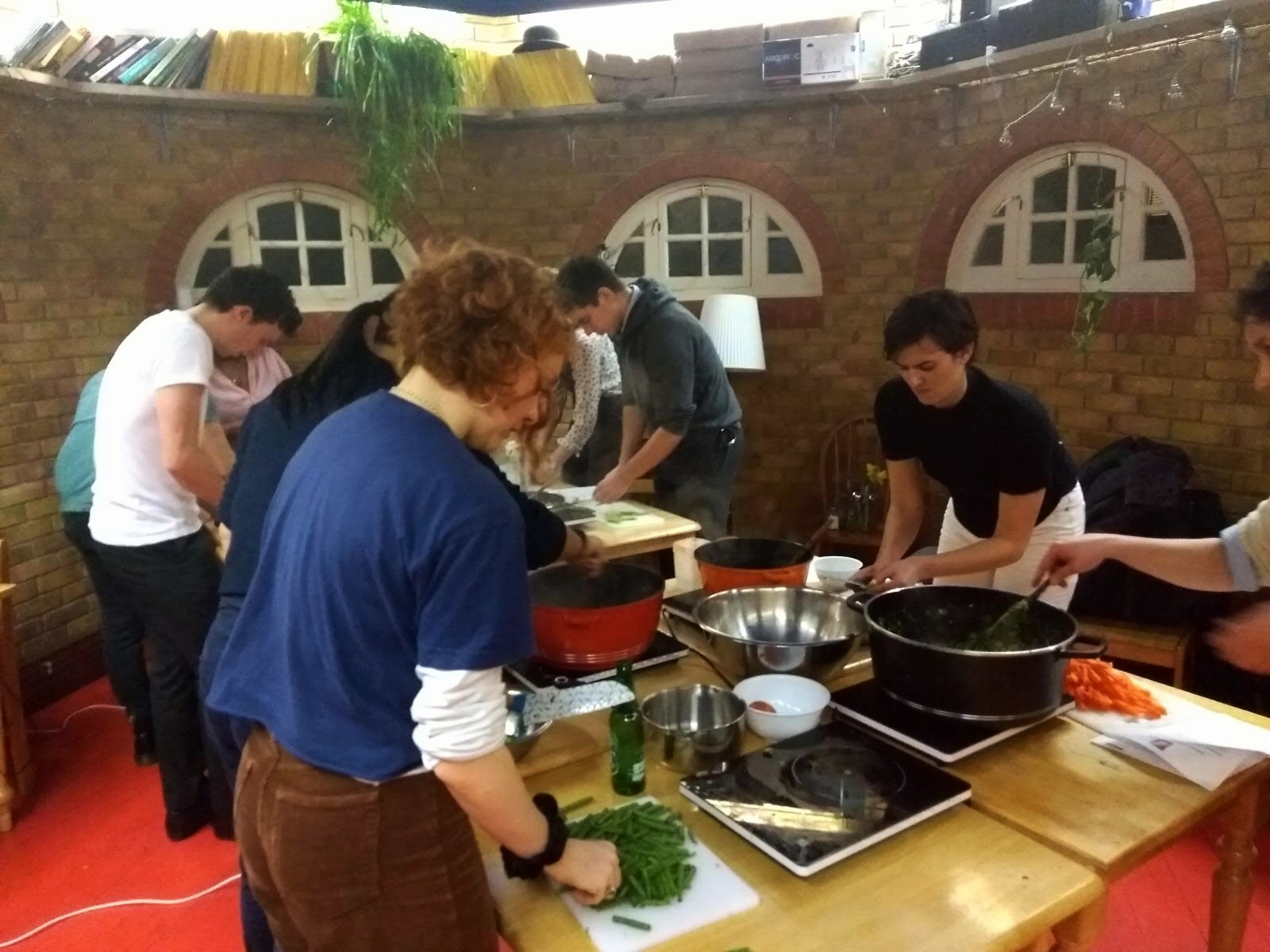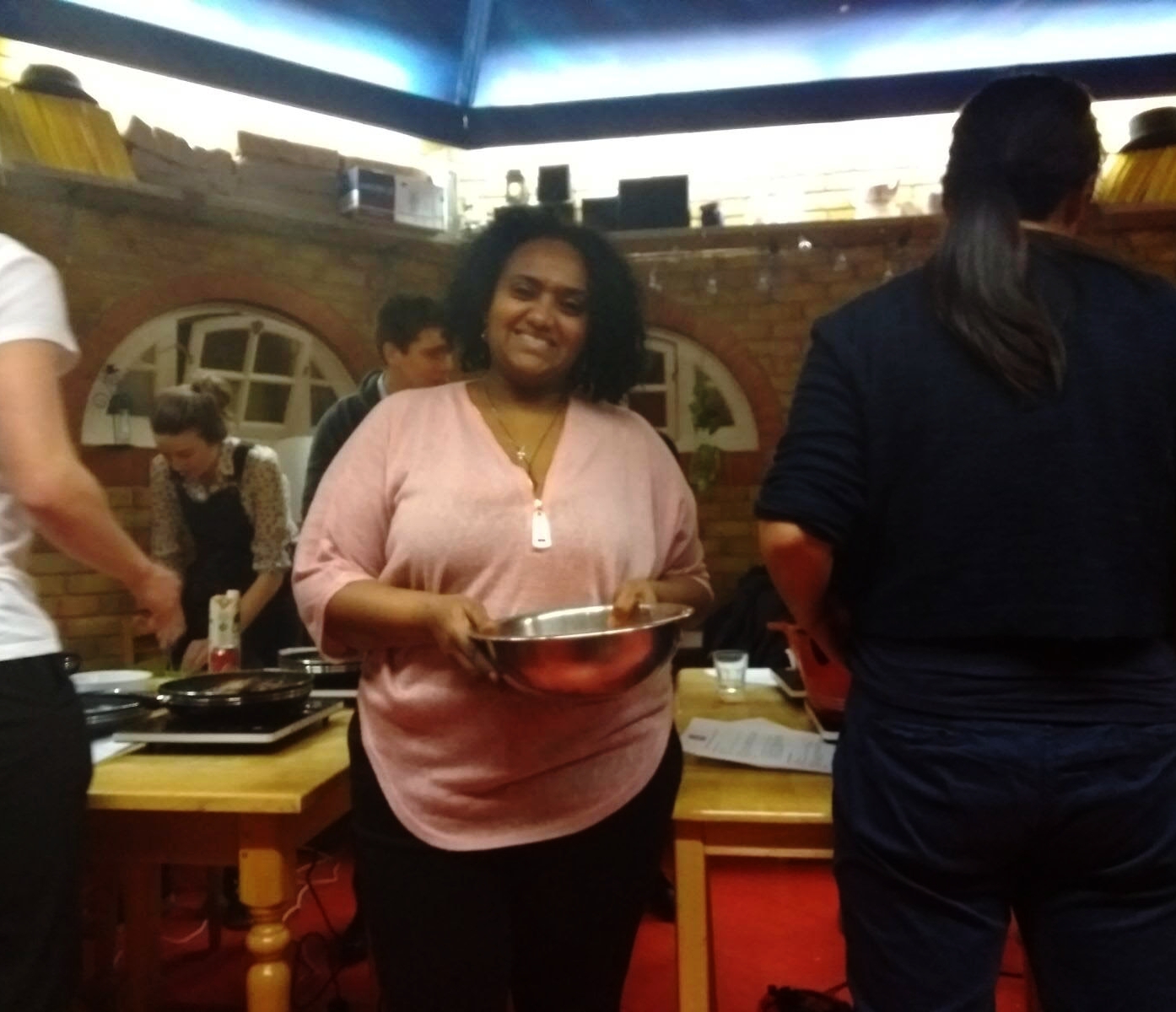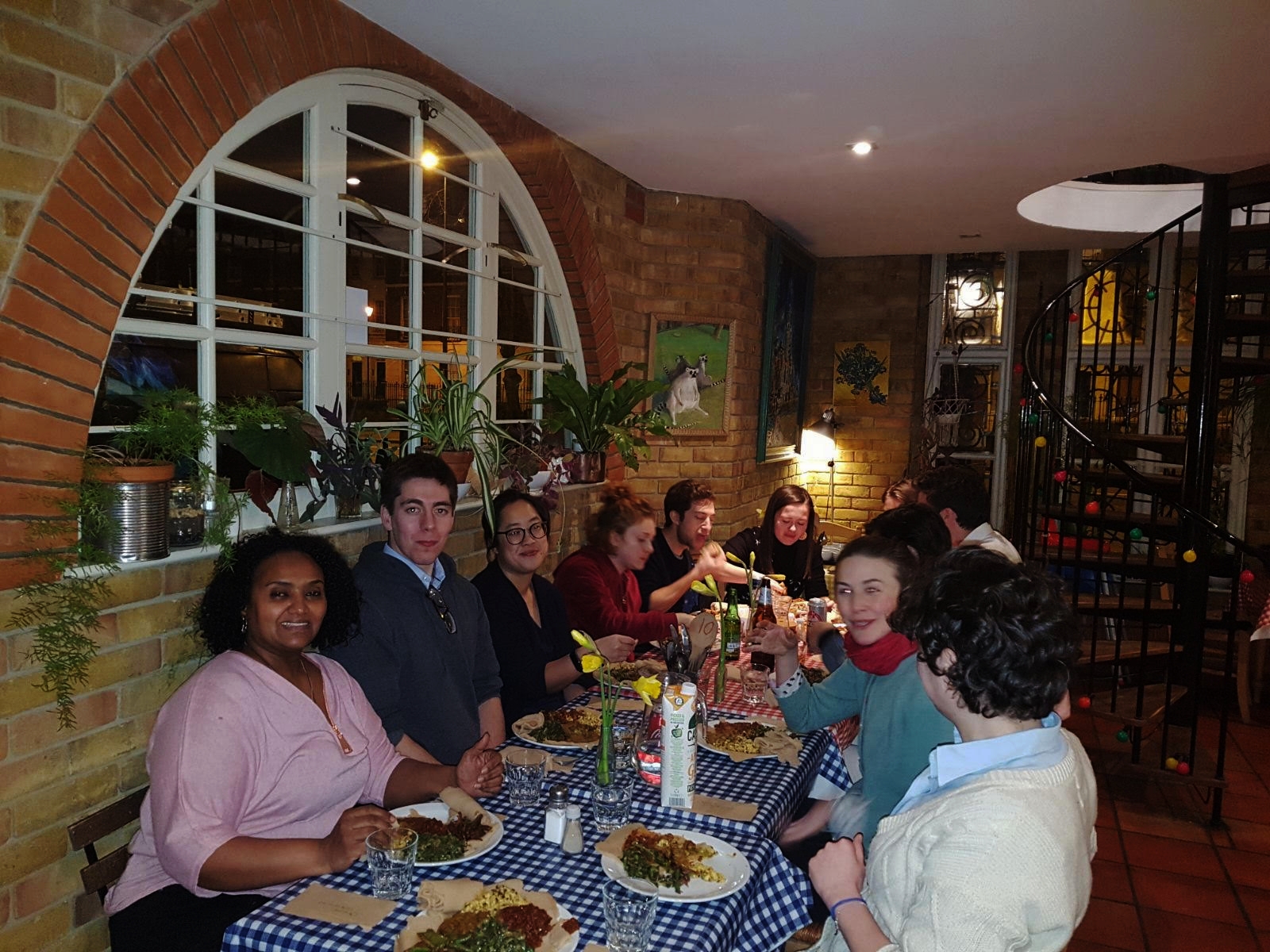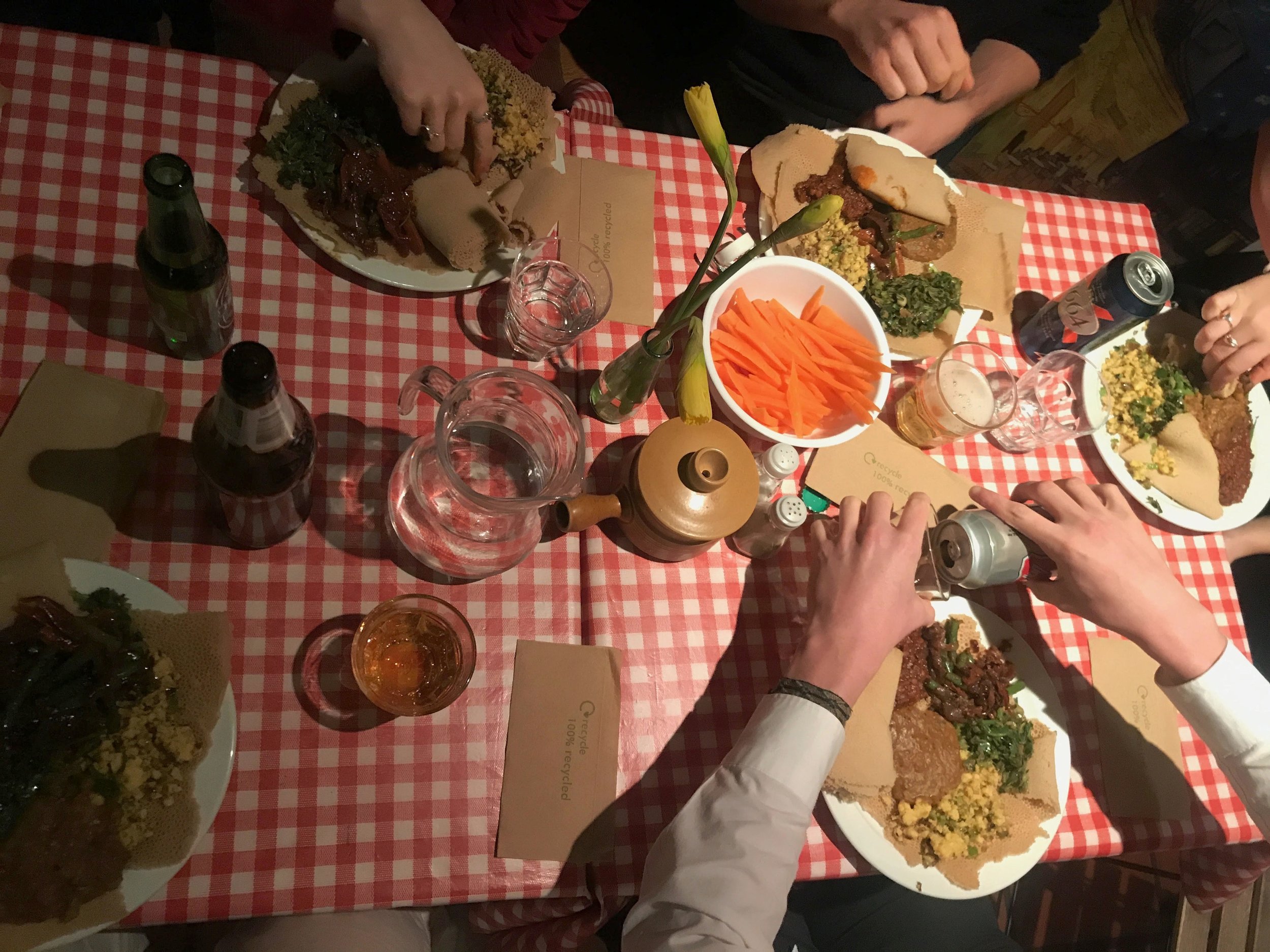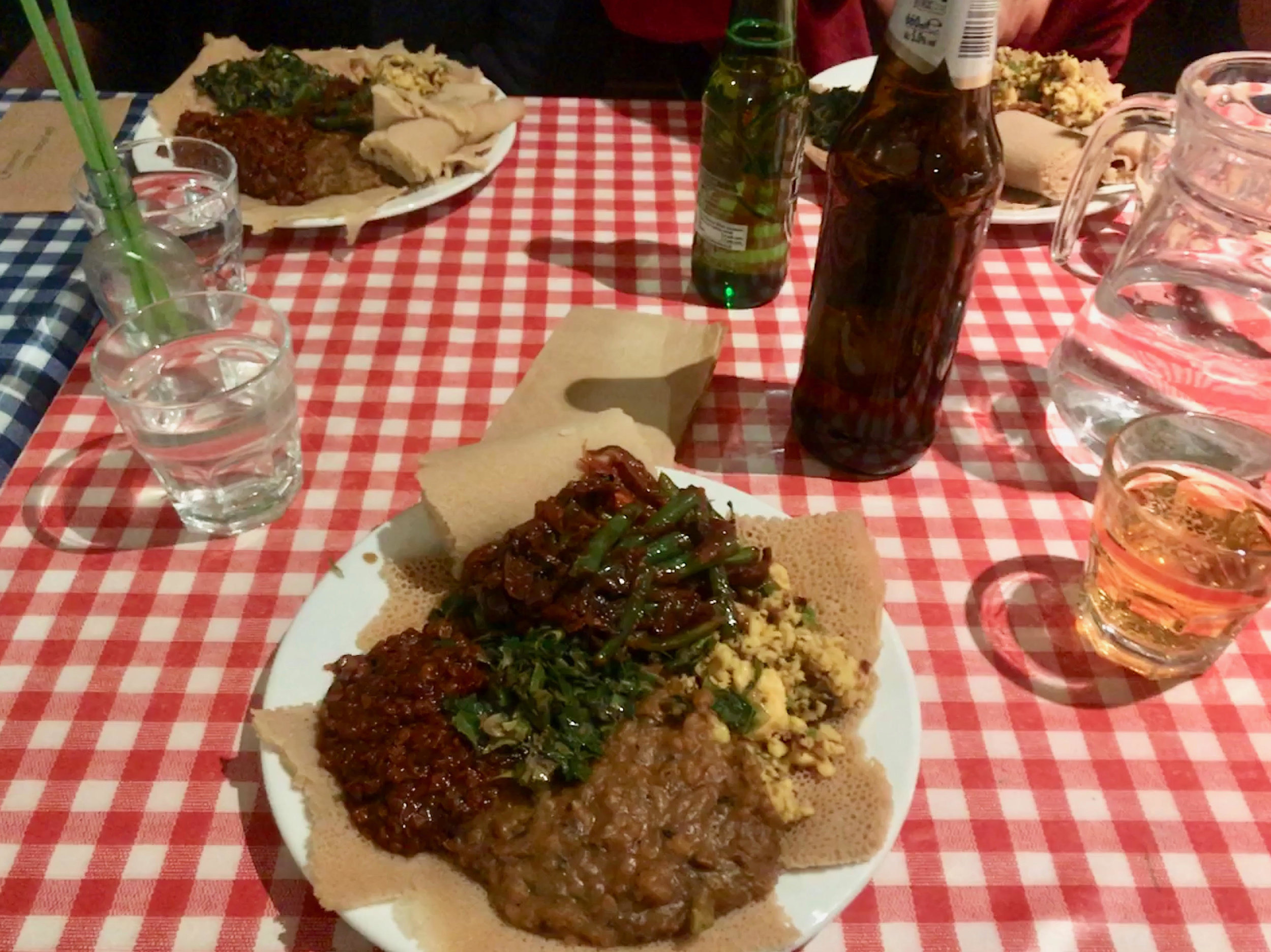On a freezing cold February evening, I find myself at the Van Gogh café in Brixton, my anticipation mounting with the room's warm fug and the lively bustle coming from the kitchen - which we later discover is the sound of many hands making light work of a mountain of finely minced onion, the base for all of the evening's Ethiopian offerings.
A group of about nine students, we head up the cafe's spiral staircase to find several gently simmering pots and an array of fresh and colourful ingredients. Before we begin, the group gathers to share a little about themselves and to hear the stories of both Migrateful itself, told by the founder, Jess, and of our teacher and head chef for the evening, Woin.
Migrateful Chef, Woin (Left) and Founder, Jess (Right).
Jess tells us her story, from working in refugee camps in Dunkirk and Ceuta, Morocco to how the idea for Migrateful was conceived, when she was working with a skills exchange project in Bethnal Green. Time and again she would meet highly skilled and capable women who found themselves marginalised and unappreciated because of their inability to work in the UK on account of legal or language barriers. Migrateful is a cooking class and supper club run by these women. It aims to be an empowering space where they can take control of their migratory stories - past and present - and feel they have something to offer and are of value. They receive training once a week, help with their English and - importantly - gain a sense of community and support. Woin tells us how Migrateful has acted as a platform for her to gain the confidence and experience to launch her own online business preparing and delivering Ethiopian food.
Then we get stuck in.
Pans upon pans of the aforementioned onions are cooking down until their sweet and intense aroma fills the steamy room, along with the sounds of enthusiastic telling of stories, laughter and chopping. As an orthodox Christian, Woin tells us that, like many Ethiopians, her diet is free from animal products during Lenten periods, adding up to around 250 days of the year. This chimes with a large number of the group, vegans themselves, they are excited to add some new dishes to their repertoire - particularly 'vegan scrambled eggs' - a scramble of chickpea flour, onions and peppers.
The food is a communal effort, everyone has a dish to lovingly watch over, to stir and keep from burning, while ingredients are prepared by the group at large and passed around in exchange for an update on what's been added to each of the respective pots. At the base of the lentil stew - kei miser wot - is mitmita, a powdered seasoning mix Woin tells us takes hours to prepare, it is a fiery terracotta colour and includes onion, chilli, cardamom and cloves. Meanwhile, turmeric brings to life alicha kik, a split pea dish whose vivid yellow hue still glows from the page of recipes I was given to take home, a warm reminder of my pot for the evening and the people who shared it. Other dishes included fosoleya, a tomatoey green bean dish and a soft gomen green cabbage.
Food's unprecedented ability to bring people together, and to foster friendship and connection is at the heart of both Migrateful's ethos and Ethiopian cuisine itself. At the end of the class our vibrant selection of pots is arranged in a circle as we gather round to plate up atop tangy sheets of injera - Ethiopia's sourdough flatbreads traditionally made from fermented teff flour.
Woin assembles a helping and deftly tears off a piece of injera, using it to scoop a little from each of the dishes on her plate and popping it into her mouth. She explains that in Ethiopia feeding one another is a goorsha - an act of friendship and love. It is a culture centred around offering and sharing what you have, whether that's a lot or a little. Food for thought.
We descend hungrily back down the spiral staircase, with our plates piled high, to find a beautifully laid table waiting. We take our seats and begin to eat. There is a momentary hush around the table as the first morsels of spiced goodness are tasted. Woin appears and is greeted with a chorus of appreciation as she passes round the platter of injera before joining us at the table. Conversation flows inbetween mouthfuls and the affection the food has created is palpable and electric. The meal is rounded off with fragrant pots of cinnamon tea, and all too soon I am hugging and saying goodbye to friends that I met only a few hours earlier. As I head home I feel warm and full, despite the freezing temperatures, grateful for the community I have been able to share in for an evening, and for the goorsha I have received, not only in the food, but in the work that Jess and Woin are doing to bridge some of the divisions that we live with, and to bring others along with them.
Want a taste of the action?
Migrateful run a wide variety of open classes, costing £35 per person they last around 3 hours and usually take place at Rosie's in Peckham.
Alternatively, you can book a private class for up to 8 people at your own venue, the team will bring their own equipment and wash up afterwards.
Head over to Migrateful's website to find out more.



